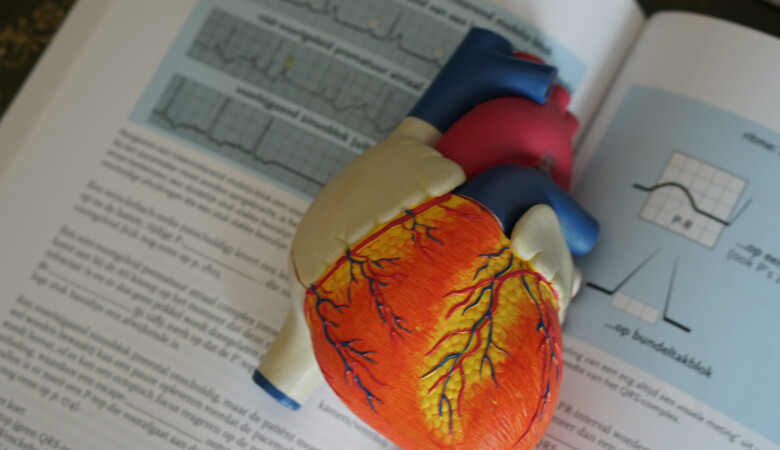The Lord Intervenes to Save Depraved Sinners (Isaiah Sermon 71 of 80)
November 27, 2016 | Andy Davis
Isaiah 59:1-21
Redemption
Andy Davis preaches a verse by verse expository sermon on Isaiah 59:1-21. The main subject of the sermon is our need for a salvation and spiritual healing that only God can provide.
- SERMON TRANSCRIPT -
We live in a great region. A lot of benefits come to us from living in the Triangle region. One of them is the benefit of living so near research hospitals like Duke and Chapel Hill and in Raleigh as well. This is a great area for hospitals. People really come from all over the world to receive treatment at the hospitals in this region. Recently, I had the benefit of flying back from Boston where I was doing a pastor's conference, and I sat next to a Hungarian Jew, and he was across the aisle from his brother and the two of them were coming to Duke to get a second opinion on a special brain tumor that his brother had, and they had gone to different places in the world and were coming here for a second opinion, and possibly medical treatment.
And I'll tell you what: I love sitting on the plane with unbelievers. And I'm telling you, I love having two hours, and we talked for two hours, and I just enjoyed just unfolding especially the Old Testament, the Book of Isaiah, unfolding the prophecies. This guy didn't know who he was sitting next to. I'm not saying that pridefully, but I was like, "Wow, we're in for it. You know we're going to have a great time," but you have to draw people into the conversation or they're not going to want to talk, and we did, and we had a... As a matter of fact, it was such a great conversation that he invited me to stay with them next time I'm in Hungary. I've never been to Hungary, but I'm looking forward to, if that ever works out. But I can tell you this: No one comes from anywhere all over the earth or even in this region to seek medical treatment who doesn't think they need it. And if you don't think you're sick, you're never going to seek a physician. And if you don't think you're facing some kind of deadly brain tumor, you're never going to submit to the radiation or the chemo or the surgery, the radical therapies that it would take to get you to be healed from that.
Jesus put it this way: "It is not the healthy who need a doctor, but the sick. I've not come to call the righteous, but sinners to repentance." Jesus is a physician for the soul, but no one seeks that treatment who doesn't think they need it. And if I can just be honest, none of us thinks we need it, naturally. We have a very high opinion of our morality. We have a very high opinion of our righteousness. We don't think we need the treatment Jesus came to give. The depravity of the human race is unfolded for us in Isaiah 59. The wickedness, the sinfulness of the human race is unfathomable, it is pervasive, it is universal, it is radical.
This is the consistent message of all Scripture. But some passages make that radical depravity clearer than others. Perhaps I would say, the clearest in all the Bible that does it is Romans Chapter 3:9-18. And there the Apostle Paul really just levels the pride of every human being on earth will listen, with the tattoo of a mournful drum, the drum beat of phrase after phrase after phrase of how much we need a savior. He says this, "There is no one righteous, not even one. There is no one who understands, no one who seeks God. All have turned away. They have together become worthless. There is no one who does good, not even one."
To support this terrible but true thesis, Paul reaches for many passages from the Old Testament, but predominantly Isaiah 59. And if you know Romans 3 as it continues from that point, you'll hear some familiarity with the verses we're going to look at this morning. Centuries before Paul wrote his epistle, Isaiah stood as the mouthpiece of Almighty God to a radically depraved humanity. Paul paraphrases Isaiah 59 and other Psalms mostly when he writes these words. In Romans 3:13-17, "Their throats are open graves. Their tongues practice deceit. The poison of vipers is on their lips. Their mouths are full of cursing and bitterness. Their feet are swift to shed blood. Ruin and misery mark their ways, and the way of peace they do not know. There is no fear of God before their eyes."
Now, the timeless relevance of the Bible for me stands on two primary pillars. The Bible is an ancient book. It's written a long, long time ago. Isaiah, written 26 centuries ago. Why is it relevant for us in 21st century America today? Well, it stands on two pillars: First, the immutability of God himself. God never changes. He's the same yesterday, today, and forever. And so the God of the Bible is the God of today and tomorrow and a thousand ages hence. Secondly, the second pillar of the unchanging appeal of the Bible is the essentially unchanging nature of the human race.
The depravity of the human race is the same now as it was in Isaiah's day. It's the same in every generation. We struggle with the same sins. We struggle with the same wickedness. We are the same people. And so the Bible addresses universality of sin in language that is as relevant and fresh now as it was 26 centuries ago. So we need to walk with Isaiah through the dark and painful diagnosis of the cancerous heart tumor of sin in this chapter. We need to listen. We need to listen to the brutally honest evaluation of a skillful surgeon who is telling us simply that our sin is pervasive and deadly. It's terminal.
And he alone can cure us. So this chapter ultimately points us to Christ as the only savior for the human race and gives us the good news of a salvation that God alone can work. Now, if like so many people, we shirk and shrink back and shrug and deny and evade this diagnosis, we shall perish. But, if like Isaiah does, I think right in this chapter, we humble ourselves and seek that salvation that God alone can give, then we shall be healed.
I. Accusation by the Lord: You Are Radically Depraved! (vs. 1-8)
So, let's look first at the verses that unfold, verses 1 through 8. It begins with an accusation from the Lord to the human race. You are radically depraved. Starts in verses one and two. Look at the verses. "Surely the arm of the Lord is not too short to save, nor is ear too dull to hear, but your iniquities have separated you from your God, your sins have hidden his face from you so that he will not hear."
So the chapter begins with God accusing Israel of radical depravity. And he does it, it seems in the face of them accusing him of being too deaf to hear, too weak to do anything, evidently, it seems because they haven't... He has not answered their prayers. Perhaps they were crying out to God in light of their crops failing or maybe a pestilence that had come in to rob their crops, locust invasion or perhaps it had to do with a threatened Gentile invasion. Maybe the Jews before the exile were terrified of the news that the Babylonians were coming and that they would not be diverted. Or maybe it's after they have already been exiled in Babylon, and they're seeking, "Why did it happen? Why was the temple burned with fire and destroyed? Why are they there in exile?"
In any case, they feel that God has failed them. He's not answered their prayers, he seems weak, he's deaf. Honestly, we ourselves make similar accusations to God in our day. We do the same kind of thing. We get into some desperate situation of our own making usually, through our own sinfulness, but not always, sometimes not always. We cry out to the Lord. We fear some outcome. We cry to God in prayer, but the thing we dread happens anyway. We lose our jobs. Perhaps a loved one dies of cancer. The very thing we were praying against happens. Perhaps there's some economic or natural disaster wipes out our earthly lifestyles as we knew them. Some hurricane, some tsunami comes, and we angrily bring it back to God with strong accusations. "You must be deaf, you must be weak, your ear is too deaf to hear, your arm is too short to save."
Dear friends, can I tell you something? God is in his prime right now, to use a human expression. God is in his prime right now. Actually, he's always been in his prime. He always will be in his prime. Nothing that God ever does, no exertion of God ever in any way depletes him. He'd never fatigued ever. And his hearing is perfect. Well he hears everything. If I can be honest, he hears more than you want him to hear. He hears everything. There's nothing wrong with God's ear and there's nothing wrong with God's arm. That's not the problem. The reason your prayers have not been answered is you, not God. Your iniquities have made a gap, the text says. They've made a separation between you and God and your sins have hidden his face from you so that he chooses not to hear. He will not hear.
So the issue is not a matter of God's ability. It's... The problem is God's will. He is not willing to hear. God is deeply offended by our sins, and they create an infinite gap between us and God. Now evangelists for centuries have used this image of a gap between us and God to share the good news of Christ, and I would commend it to you. I mean, you could be at a restaurant and you're talking to a lost co-worker or a neighbor or a friend or even a total stranger, and you could pull out a piece of paper or a napkin and you could draw a gap like a canyon, and you put the precipice on one side and then on the other, you could imagine a gap like the Grand Canyon even. And you could draw a stick figure on one side and you could write the word "God" on the other because there's nothing you could write that would symbolize God. You just write God. And there's this gap, this infinite gap, this separation between you and God that the sins have worked.
And if you've ever been to the Grand Canyon, you can imagine the vastness of the space. It just seems to go on forever. But this is an even greater gap than that. It's an infinite gap between us and a holy God. And then in evangelism, then you can draw a cross that goes across that gap and bridges the gap. You could say how individuals try to run and jump and... Doesn't matter how athletic they are, doesn't matter how they could... They can never cross the gap. But the God in Christ has bridged the gap. He has become a bridge builder between us. He's a mediator between us and God and he makes a way so that we can go to heaven, and he actually is the only mediator, the only bridge builder between us and God. And if we trust in him, we can be brought nearer to God.
All of that really flows from the image of a gap right here in this verse. This verse also could remind us not so much of a horizontal gap, but of an infinite gap upward, the elevation, the lofty elevation of God. God is infinitely above us. He's given us this image again and again. He's not on the same plane as us. The gap is really more vertical. He is above us, infinitely above us. Isaiah 6:1, "In the year that King Uzziah died, I saw the Lord seated on a throne, high and exalted." Or again in Isaiah 57:15, as we saw a few weeks ago, “This is what the high and holy one says, he who lives forever and whose name is holy, 'I live in a high and holy place.'"
So these verses should cause us to tremble and to repent and see what our sins have done to our prayer lives, into our intimacy with God. But now God goes on to dig deep and to expose the radical depravity of the hearts of the Jews that this was first written to and really then by extension to all of us. This is no superficial issue, this sin. It is deep and full and pervasive. Now, at the beginning of this section, he does it directly speaking to us in the second person: "Your hands, your fingers, your lips." But then he broadens it to speak more universally: "No one calls, no one pleads, they speak lies, they can see evil." So, for us, we need to see sin as our own personal problem. But then it's everybody else's problem too. And so, sin is deep and personal and individual, but it's also widespread and pervasive and universal.
Your Radical Depravity Exposed
So now he goes into it in verses 3-8. Look at the verses. "For your hands are stained with blood, your fingers with guilt. Your lips have spoken lies, and your tongue mutters wicked things. No one calls for justice; no one pleads his case with integrity. They rely on empty arguments and speak lies; they conceive trouble and give birth to evil. They hatch the eggs of vipers and spin a spider's web. Whoever eats their eggs will die, and when one is broken, an adder is hatched. Their cobwebs are useless for clothing; they cannot cover themselves with what they make. Their deeds are evil deeds, and acts of violence are in their hands. Their feet rush into sin; they are swift to shed innocent blood. Their thoughts are evil thoughts; ruin and destruction mark their ways. The way of peace they do not know; there is no justice in their paths. They have turned them into crooked roads; no one who walks in them will know peace."
Let's just step through it. First, he says, "Your hands are stained with blood." This speaks of violence, of murder, of aggression, attacking weak, weaker neighbors. And you say, "I've never done that. I'm not guilty of bloodshed." No, but Jesus said in the Sermon on the Mount, "You have heard that it was said you shall not murder, but I tell you, if you're even angry with your brother, you're in danger of the fire of hell." So there's murder in your heart even though your hands are not stained with blood. He says, "Your fingers are stained with guilt." I think the fingers for me represent precision skill. You think about the skillful fingers of a concert pianist or a brain surgeon. Talk about precision. So putting it together, we are skillfully evil. There's a precision to our evil. Our fingers are stained with guilt. And he says next, "Your lips have spoken lies and your tongue mutters wicked things." Here we get to our mouths. James says, "The tongue is a restless evil full of deadly poison." We speak evil things to each other. And lying, lying is a terrible sin.
The Scripture says in another place that all men are liars. And when we lie, we are acting like the devil, for he is a liar and the father of lies. The muttering of wicked things shows the fullness of our hearts. Out of the fullness of the heart, the mouth speaks. So we say wicked things because we have wicked things in our hearts. And then he says, "No one calls for justice or pleads his case with integrity." In the courts of law, they're not looking for justice, they're looking for an outcome, a verdict that will benefit their side. And so some lawyers are skillful at twisting the truth and making the truth plastic and stretching it so that they can get the outcome they want. It was going on back then. It's going on today. They're not pleading their case with integrity. And so we also do, not in a court of law, but just in telling a story about how someone hurt us, and we stretch and expand the truth and when contracted, we don't tell the things we did, but how wrong they treated us. And so, we gossip and slander and do these kinds of things.
Stretching, we're not pleading our case with integrity, but there's lying that just flows from us. Look at verses four and five, "They conceive trouble and give birth to evil. They hatch the eggs of vipers and spin a spider's web. Whoever eats their eggs will die, and when one is broken, an adder is hatched." Well this speaks of our evil plans. We use our imaginations and our minds to hatch evil plans, busy minds conceiving trouble, spinning spider's webs of deceit to make a profit or get revenge or seize a neighbor's property, or hurt an enemy, get back. They're using their amazing God-given intellects and imaginations for crafting evil plots. And their plots are likened here to spider's webs and the eggs of a viper. And the hatching of the eggs results in a bitter surprise. Out comes a young snake, a serpent, snapping with poisonous vipers, fangs, ready to kill whoever broke open the egg.
That's the plans when they're hatched. But then in verse 6, they cover all of this wickedness with wispy clothing of self-righteousness. Verse 6, "Their cobwebs are useless for clothing. They cannot cover themselves with what they make." Thinking to atone for their sins themselves, they make coverings. They cover their wicked nakedness with cobwebs of self-righteousness." This is exactly what Adam and Eve did in the Garden of Eden. You remember how their eyes were open and they realized they were naked? And so they put on fig leaves to hide from each other, and then when they heard God calling, they hid behind a tree. They're hiding. They're trying to block God's holy eyes from their wickedness and they're doing it with these cobwebs, these transparent cobwebs of self-righteousness. We tend to do it with morality and religion trying to be a good person, turn over a new leaf, making resolutions and trying to keep most of them most of the time, this morality, and then there's religion. People craft, concoct religions or they receive a false religion that was crafted or concocted by human imagination centuries ago and they follow its basic works patterns. All those religions are works religions. Just do this, don't do that, and you can be righteous, and you can cover up your wickedness with your own cobwebs.
The Jews of Isaiah's day were notoriously religious. They brought thousands of bulls and goats, and sheep, as atoning sacrifice to the temple. There was a river of animal blood, but not a single genuine tear of brokenness and sorrow over their sin. No sinner can be made right by our own good works. The wispy cobwebs of self-righteousness are going to get blown away on Judgment Day. It says in Romans 3:20, "For by works of the law shall no human being be justified in God's sight." It's impossible. So we need to stop right now and just take application right here in the middle of the sermon, and look. The Word of God is like a mirror. James says it's like a mirror. The law of God is like a mirror. We are to look and see ourselves, and see what these words are saying to us. Paul chose to borrow Isaiah's words in this chapter, and apply them universally to the entire human race, all of us. "What shall we conclude then?" He says in Romans 3. "Are we any better? Not at all. We've already made the charge that Jews and Gentiles alike are all under sin. As it is written, there is no one righteous. Not even one. No one. Who understands, no one who seeks God, all have turned aside. They've together become worthless. There is no one who does good, not even one." That means you and me. That's us. We're talking about us here.
II. Confession by the Humble: We Acknowledge Our Wickedness (vs. 9- 15a)
Well, at this point, the text turns to a confession by the humble. We acknowledge our weakness. The text moves from you to we. Do you see it? Verses 9-15, a confession just flows. It turns inward and humble, the prophet speaking for the redeemed among Israel, among the Gentiles who find salvation in Christ, makes no effort to deflect the accusation of verses one through eight. No effort to deny, no effort to minimize it, everything the text said about us is true. It's painfully and shockingly true. The text then moves from you and they to we and us. True salvation, then must always begin with honest confession and humble pleading for mercy. God the God who dwells in that high and holy and lofty place is willing also to deal with the humble and contrite in spirit, to revive the spirit of the lowly, and revive the heart of the contrite. So we all have to be like the tax collector, not the Pharisee in Jesus's parable in Luke 18 where the two went to pray. "Two men went up to the temple to pray, one a Pharisee and the other a tax collector. The Pharisee stood up and prayed about himself: 'God, I thank you that I am not like other men-- robbers, evildoers, adulterers-- or even like this tax collector. I fast twice a week and give a tenth of all I get.' But the tax collector stood at a distance. He would not even look up to heaven, but beat his breast and said, 'God, have mercy on me, a sinner.' I tell you that this man, rather than the other, went home justified before God. For everyone who exalts himself will be humbled, and he who humbles himself will be exalted."
That's what this text is meant to do in your life. Just as Jesus taught in the Sermon on the Mount, Blessed are the spiritual beggars for theirs is the Kingdom of Heaven. God will give to people who have nothing to offer. He'll give them a kingdom. And then the beatitude just flow from that. "Blessed are those who mourn for they will be comforted." It's just grieving over this, that this is who we really are. "And blessed are the meek for they will inherit the earth." They're humble and meek. They're not arrogant and prideful. They just know they're sinners. I'll give you the earth. "And blessed are those who hunger and thirst for righteousness." I mean really hungry for it, and we don't see it in ourselves, and we don't see it horizontally in society. We'll get to that in a moment. We don't just don't see it. We're yearning for it, and he'll just give it to you as a gift. This is so vital for us.
Justice is Far from Us; We Grope Like the Blind; We Are Dead
And so, Isaiah begins this section by saying "Justice is far from us..." Look at verse nine. "Justice is far from us and righteousness does not reach us. We look for light, but all is darkness. For brightness, but we walk in deep shadows." Now, we've seen over the last few weeks, justice is horizontally giving to your neighbor what you owe him. Loving your neighbor as yourself. And then institutionally, that courts and kings and powerful entities in society, would look out for the weak, and the broken, and the defenseless. That's what justice means in the Book of Isaiah. But we look for justice, we don't see it. We're not seeing justice at all. We can... As we look around, we just see darkness. 1 John talks about this. 1 John 2:9-11. "Anyone claims to be in the light, but hates his brother is still in the darkness." Groping in the darkness. It's the image. "But whoever loves his brother lives in the light and there's nothing in Him to make Him stumble, but whoever hates his brother is in the darkness and walks around in the darkness. He doesn't know where he's going because the darkness has blinded him."
And so there's this injustice. Interpersonal like in the parable of the Good Samaritan, the priest and the Levite walking by a dying man on the other side of the road and doing nothing to help him. They had money in their purse that they could have given to the inn-keeper for the care of that bleeding man, which the Good Samaritan did do, but they unjustly kept back from their neighbor what they should have given to him, injustice. And wealthy land owners, that hired people who are weak and defenseless in society, and then defrauded them of their wages, anything like that, going on today? I don't know. But I wonder with all the undocumented aliens that there might be in our region, how some of them might be being defrauded of wages, because they have no voice. They're afraid of getting evicted from the country, and so they're getting defrauded. I would imagine those kinds of injustice go on within half a mile of this building during the week. Injustice.
And so look at verse 10 and 11. "Like the blind, we grope along the wall, feeling our way like men Without eyes. At midday we stumble as if it were twilight. Among the strong, we're like the dead. We all growl like bears. We moan mournfully like doves. We look for justice but find none, for deliverance but it's far away." This growling and moaning is from the lamentation of sin. Other people sinning to us, we see other wickedness going on to other people, our own sinfulness, it's just grievous." And so Isaiah confesses the wickedness. We need a savior.
Look at verses 12 and 13. "Our offenses are many in your sight. Our sins testify against us, our offenses are ever with us, and we acknowledge our iniquities." That's confession of sin. Isaiah's doing it for us. But you have to do it for yourself. We acknowledge that what you're saying about us is true. I am that kind of a man, I am that kind of a woman. Look at Verse 13, "rebellion and treachery against the Lord, turning our backs on our God, fomenting oppression and revolt, uttering lies that our hearts have conceived." So, Isaiah comes directly to point. Our sins are many and they are mighty in the sight of God. And all we can do is confess the truth to God. And these verses speak of a deep-seated rebellion against God, the King. It's not a light thing that we occasionally do. We, in our hearts, don't want God to rule us. We don't want a king. Want to rule ourselves. And it's deeply relational, too. We have turned our back on God. God wanted a personal relationship with us. Like the father of the prodigal son, He wanted an intimate friendship with us, but we turned our backs on Him and we did not seek that relationship but ran after the lust of our hearts and after idols. And we didn't want that relationship with God.
And so, our sins are pervasive. Rebellion against the Lord and injustice toward others. Verses 14 and 15, "Justice is driven back and righteousness stands at a distance, truth has stumbled in the streets, and honesty cannot enter." Verse 15, "Truth is nowhere to be found and whoever shuns evil becomes a prey." Well, Isaiah has spoken a thorough, complete word of humble confession to God. There's nothing left to do. There's nothing we can do. God must act or we will not be saved. God must step into all this mess.
III. Intervention by the Lord: Salvation and Vengeance (vs. 15b-18)
He must intervene or there will be no salvation and thanks be to God He does. This is the celebration part. God looked and saw this situation. Look at it, Verse 15: "The Lord looked and was displeased that there was no justice." Verse 16, "He saw that there was no one, He was appalled that there was no one to intervene, so His own arm worked salvation for Him and his own righteousness sustained Him." Amen, hallelujah.
He looks down and says, "You all can't save yourselves. And so, my own arm is going to work this salvation on your behalf." There is no one righteous, no one who understands, no one who seeks God, He finds no one to intervene. And so, no one vindicates God's name, no one vindicates His holiness and righteousness, so He has to do it for Himself. Now, what's difficult to see here in this text is that there are actually two different outcomes. Both of them work by the zeal of God. God's passion for His own holiness. There are two outcomes. Salvation for some and vengeance for others. Do you see it? It's right in the text. God's own arm worked salvation and His own arm worked vengeance. So, that's the gift of salvation, a gift of righteousness, that we didn't deserve, on the one hand, and then the justice of righteous condemnation for rebels, on the other, and both of them work by God. So, look at verse 16 and 17. Do you see the words salvation there, salvation.
And then in Verse 17, do you see the word vengeance, salvation and vengeance. Those are the two outcomes. Both of these are in view here. Now, God cannot, He will not allow sin to just rule in His universe, he's got to do something about it, and He steps in to act. But amazingly, it's not only vengeance, which we all would deserve, but salvation that God achieves. Now, we are troubled by God's slaughtering His enemies, it seems without mercy, but the real question here is the word salvation in Verse 16. If every single human being is sinful and is forsaken the glory of God, then how does God vindicate His righteousness and work salvation at the same time, how could that even be? But that's the good news of the gospel of Jesus Christ, the cross of Jesus Christ is God's answer to how God can be both at the same time, just and the justifier of those who have faith in Jesus. He vindicated His righteousness at the cross. Romans 3:21-26 says, "But now, a righteousness from God apart from the law, has been made known to which the law and the prophets testify. This righteousness from God comes through faith in Jesus Christ, to all who believe, there is no difference, for all have sinned and fall short of the glory of God, and are justified freely by His grace through the redemption that came by Christ Jesus. God presented Him as a sacrifice of atonement, a propitiation, through faith in His blood. He did this to demonstrate His justice, so he could be both just and the justifier of those who have faith in Christ."
So God establishes His justice at the cross. Jesus suffered, He drank the cup of God's wrath that we deserved. And so, we have that beautiful transfer, our guilts given to Jesus and He died under the wrath of God. His righteousness given to us as a gift and we are seen to be righteous. So, Isaiah 59 shows the work of salvation to the display of the zeal of Almighty God for righteousness, worked by His only begotten son, Jesus Christ.
God Clothed Himself With Righteousness and Zeal
Now, He does it, Verse 17, by clothing himself with righteousness and zeal. Look what he says, verse 17, "He put on righteousness as a breastplate, and the helmet of salvation on His head, He put on the garments of vengeance and wrapped himself in zeal as in a cloak." So, you get the picture of God dressed up for war. This image should be very familiar. We just went through Ephesians Six. And the full armor of God. We got the helmet of salvation, the breastplate of righteousness. Yeah, but who's getting dressed up here? It's Jesus. Jesus is dressed for battle here.
And in his first coming you know what he battled? He battled lust and sin and Satan. He was born under the law, and took on all these temptations and killed them all, like Samson with the jawbone of a donkey. I love it. A thousand dead Philistines at his feet. Jesus took on every single temptation that ever came his way in 30 plus years of walking under the law of God, killed all of those sins, and he worked for us a beautiful perfect robe of righteousness that he offers to us as a gift. And He just hands it to us. Basically, you know what he's saying, "I have a white robe of righteousness, and I'm offering it to you today, just put it on."
You're going to need it on judgment day. So put on that beautiful white robe. One preacher called it an asbestos robe where you can walk through the fire of testing on judgment day and you'll survive. And so again and again in the Book of Revelation, we have this white robe image: The 24 elders are dressed in white robes, the church at Sardis are dressed in white and walking in white. In Revelation Seven there's a multitude from every tribe and language and people and nation standing around the throne. They're dressed in these white robes. And at the second coming of Christ, when He comes before the armies of God, they're all dressed in white and they're ready to fight. And where did those white robes come to sinners like us? It's a gift.
Perfect righteousness given to you as a gift. But that's not all God works in this text. Verse 17 and 18 says he also works vengeance, "He put on garments of vengeance and wrapped himself in zeal as in a cloak." Look at verse 18, "According to what they have done, so will He repay. Wrath to His enemies and retribution to his foes. He will repay the islands or the coastlands their due." So here we see God highly motivated and immeasurably zealous to vindicate His law against all sinners who have not repented and trusted in Christ. He's motivated to vindicate His righteousness. So he's zealous, and he's going to hunt down and destroy all who have rebelled against Him and have not found salvation in Christ.
Now, this is pictured in the book of Revelation, not at the first coming of Christ, but at the second coming. Listen to Revelation 19, it says, "I saw Heaven standing open and there before me was a white horse whose rider is called faithful and true, and with justice He judges and makes war. His eyes are like blazing fire, and on His head are many crowns, and He has a name written on Him that no one knows but He Himself. He is dressed in a robe dipped in blood, and his name is the word of God. And the armies of heaven were following him riding on white horses, dressed in fine linen, white and clean. And out of His mouth comes a sharp sword with which to strike down the nations. He will rule them with an iron scepter. And He treads the wine-press with the fury of the wrath of God almighty, and on his robe and his thigh, he has this name written, 'King of Kings' and 'Lord of Lords'."
It's the second coming of Christ, and that's when this vengeance is going to come. Look at verse 19, it says "He will come like a pent-up flood that the breath of the Lord drives along." I get the image of a tidal wave, like happened in that Indian Ocean tsunami, that earthquake that had this huge tidal wave that wiped out parts of Indonesia and the coastline of India. Or the same thing happened off the coast of Japan a few years ago: A massive tidal wave of justice that nothing can stop.
Verse 18 says "He will repay the islands their due." It's not a localized thing, it's going to go to the ends of the earth. Everyone will be repaid. And it says, "According to what they have done, so will He repay wrath to His enemies in retribution to His foes. He will repay the islands their due." So basically then this is a picture of judgment day. The court will be seated, the books will be opened, and everyone will be judged according to what they had done as recorded in the books. He will repay his enemies what they did. And no, and so His ear is not too deaf to hear, His eyes blind to see, He sees everything. His memory is really excellent. As I said, God is in his prime, He doesn't forget anything. There's a perfectly accurate record book of everything you've ever said or done, and on that day, everyone will be judged according to what they've done as recorded in the book. That's what's coming.
IV. The Result: Worldwide and Eternal Salvation for the Repentant (vs. 19-21)
Now, the result of all this is worldwide and eternal salvation for the repentant. Look at verse 19, it says, "From the west therefore, men will fear the name of the Lord, and from the rising of the sun, they will revere his glory." So again and again, God... Isaiah has reminded us of God's saving intention for all the nations of the earth, not... It's not just localized to one nation. All over the earth, the islands, the distant coastlands, they're going to hear this message, this Gospel.
And they're going to hear it and believe, and they'll be delivered from the tidal wave of justice that's going to come. They'll be delivered from what they deserve, what we deserve for what we had said and done. And even now, we have brothers and sisters in the land of the rising sun, Japan. I've met them. I remember a sunrise service, Easter Sunday, and I thought, "Hey, we get it first. Of planet Earth, we in Japan get to worship first." There's probably some island out there in the Pacific that gets it first. But we're second. Anyway, we're right there on the coastlands for the rising of the sun. Men will fear his name and find salvation in Jesus. And even to the place where it sets, as the sun rises and sets to the distant west, to the ends of the earth, people will hear and believe.
The Redeemer Comes to the Repentant
And so verse 20, the redeemer will come to Zion to those in Jacob who repent of their sins. That's an amazing verse at the end of this chapter. I can't plumb the depths of it, I'll just say something really quickly. In the book of Isaiah, Zion represents the city where God dwells with his people. It usually refers to the literal physical city of Jerusalem. But in prophetic vision, it starts to talk about the heavenly city, heavenly Zion where God dwells. Here it actually somewhat means both. The redeemer is Christ, by His blood He has redeemed sinful Jews from their wickedness, to those in Jacob who repent of their sins, Jesus will come as redeemer, and He will deliver them of their sins. Paul quotes this verse amazingly in Romans 11, to talk about the future of the Jewish nation. And he says that there is a future salvation coming for the Jews, the physical descendants of Abraham.
Not of every individual Jew in history, many of them die without Christ and they are condemned just like Gentiles who die without Christ are condemned, no difference but in the future I believe there will be a mass conversion of the Jewish nation all at once they're going to turn as a nation to look to Christ the one they have slain and they will find in Him their salvation. Listen to Romans 11:25-27, he says, "I do not want you to be ignorant of this mystery brothers so that you may not be conceded. Israel has experienced a hardening in part until the full number of Gentiles has come in and so all Israel will be saved as it is written…” Now, here comes Isaiah 59: "As it is written, the deliverer will come from Zion, He will turn godlessness away from Jacob and this is my covenant with them when I take away their sins." Now, Paul had the right because he's apostle, you know how ambulance drivers and fire drivers they can just go through red lights and all that, he had the right under the inspiration of the Holy Spirit to change the verse a little bit but the meaning is still the same, it's powerful. He actually changed it not from the deliverer will come to Zion but the deliverer will come from Zion so basically Zion has changed locations, it's now heavenly. The glory under Ezekiel left and went heavenly and the redeemer is coming from the heavenly Zion down to those of Jacob who repent of their sins.
So what do I think is going to happen? Well, I think what's going to happen is Jews just like that Hungarian brother that was sitting next to me and I talked to him, in large numbers right before the second coming of Christ will hear the Gospel and the deliverer will come, Jesus the Spirit of Jesus will come through the power of the Holy Spirit and transform their hearts so they turn away from their sins and to their redeemer, to Jesus and find salvation in Him just before the final curtain falls in human history. That's pretty cool. That's why I love witnessing to Jews, I love being able to share the gospel. We had a great conversation, I wish he lived in the area we would have had him over for Thanksgiving and we would had a great conversation.
But there at the end of the world, this mass conversion and so the final promise here. As for me, verse 21, this is my covenant with them says the Lord, my spirit who is on you and my words that I put in your mouth will not depart from your mouth or from the mouths of your children or from the mouths of their descendants from that time on and forever. This is the New Covenant, God is going to be with us, He's going to forgive our sins, God is going to live with His humbled, repentant, saved people and the word and the spirit will be with us in our mouths and in our hearts until the end.
V. Applications
So application: First if I can just say all of you who hear me today acknowledge your sins in detail, go through it, look at it, look at the part on violence and hand stained with blood and realize you don't have to have committed murder to have the heart of a murderer. You don't have to have committed adultery to have the heart of an adulterer. Jesus talked about looking at the heart, realize these verses are talking about you not just everyone else out there and how bad the world is. Second of all, if you're already a Christian, do you not realize you've been forgiven much? This should be like your number one thanksgiving thing. I'm just happy that a sinner like that has been forgiven through Jesus. I'm just so thankful my sins have been covered and forgiven so this is actually, ironically, mucking around in verses like this, has power to make you happy, it also has the power to deliver you from complaining about things that are going on in your life because you have been forgiven much, what right do you have to complain about anything?
So if you're Christian you have already found all of this forgiveness and riches and then thirdly it causes you to esteem Jesus more higher than you ever did before. He took these kinds of sins on Himself and died under the wrath of God, thank God for that and have a sense of the zeal of God in all of this, God is passionate about sin. He's not ignoring it, His ear is not too deaf and His eyes and God sees and knows exactly what's happening, He's just waiting for you to repent and trust in Christ. So, I've got to say to you who are unbelievers, who know yourself to be there outside looking, you have time today to repent and find in Jesus your redeemer, trust in Him. Flee to Christ while there's still time.
And then finally, the distant islands and the coastlands, we should care about missions. Amen. This is a great time for us to be raising money through the Lottie Moon Christmas offering. We at Southern Baptists, we give our money, we pull it together with other Southern Baptist churches so that we can send missionaries to the distant coastlands and the Islands and to the ends of the earth. I can tell you as a trustee of the International Mission Board, I can tell you there are qualified missionary candidates who we cannot appoint until we have sufficient funds that come in through the Lottie Moon Christmas offering. If they reach a certain level we will appoint more people next year, just has to do with financial responsibility. Let's be generous as a Church, let's sacrifice financially and give. Pray about what God would have you to do, to send this message to the ends of the earth and it could be some of you younger people God may be calling on you to be a career missionary. You may be in college, maybe even high school or before that, God may be calling on you to prepare to take this Gospel to the ends of the earth because people there are just as sinful as we are and they need Christ. Close with me in prayer.































